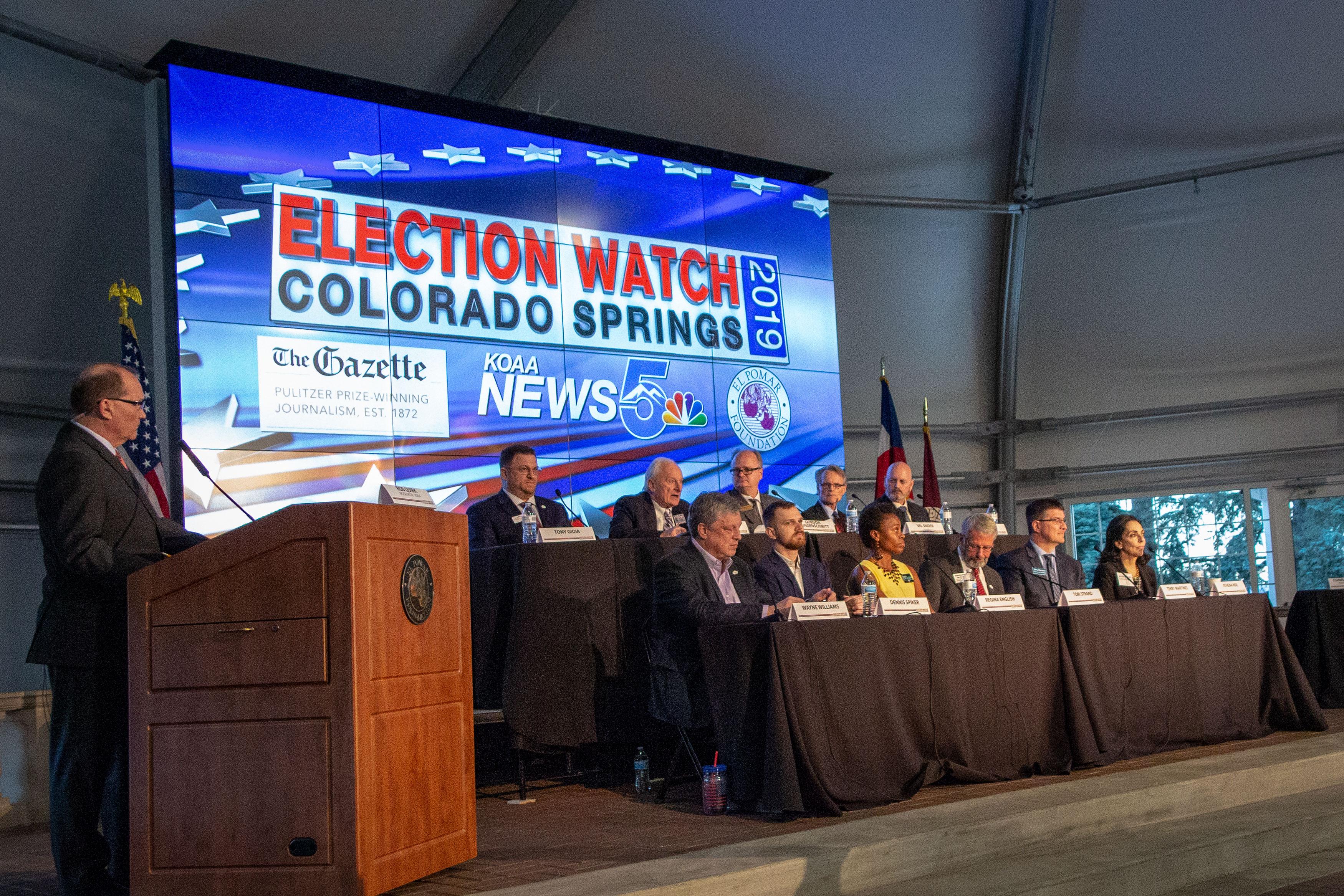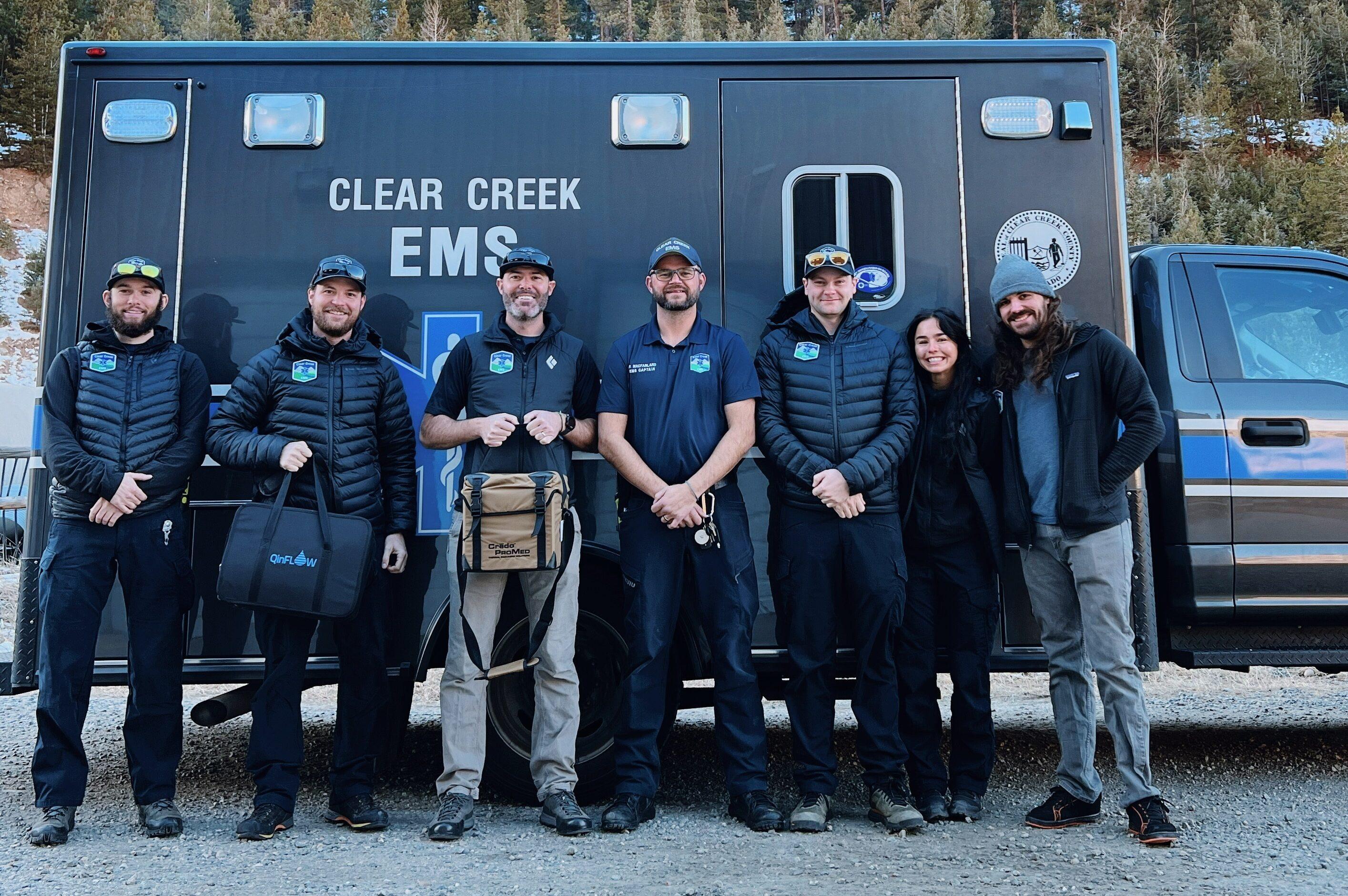

On April 2, Colorado Springs residents will cast ballots for Mayor, three at-large city council seats and decide on a measure to allow firefighters to unionize.
In the Mayor’s race, former Republican Attorney General John Suthers is running for a second term against three candidates with far-less name recognition and political experience.
- Questions About Colorado Springs Election? Here’s Are The Basics You Need To Know
Suthers won his first term with nearly 70 percent of the vote in 2015. Colorado College professor emeritus and local political analyst Tom Cronin expects the strong local economy will likely propel the incumbent to a repeat victory.
“Any major candidate or rival to him would have held off and said they might consider that four years from now,” he pointed out.
In fact, Cronin believes this could be the long-term plan of the highest profile candidate in the city council race: former Secretary of State Wayne Williams. The Republican lost his re-election bid to Democrat Jena Griswold in last November’s blue wave.
If Mayor Suthers wins a second, he would be term-limited in 2023, which could leave Williams, a long-time Colorado Springs resident with strong name recognition, in a comfortable position to run for mayor.
Good, quick rundown of CO Springs mayoral candidates from @KRCC: https://t.co/3fkImwoBWC pic.twitter.com/TUyLPZGCPy
Williams joined the 10 other council candidates for a televised debate at the Penrose House in Colorado Springs earlier in March. Each contender, including incumbents Bill Murry and Tom Strand, weighed in on hot-button local issues like the city’s growing homeless population, whether to allow recreational marijuana businesses in city limits or contentious new bike lanes in the downtown core.
Social worker Pamela Roberts, who recently moved to the Springs, said she was not impressed with the candidates after the debate. Though the contenders span the political spectrum and include two women, Roberts wasn’t happy to see most of them are older white men.
“It’s not as diverse as I wish it would have been,” she said.
Resident Jaymen Johnson, a candidate himself in the past, said the lack of diversity “highlights an underlying need to increase the wage for city council.” To him, the annual council member stipend of $6,250 weeds out many potential candidates.
“That they could reasonably put their career on hold to go and run for city council,” he said. “As it is, unless you’re affluent and retired, you have neither the financial means nor the time to do this.”
Others argue the low wages are intended to keep the council jobs out of the hands of overly-partisan career politicians.
The one ballot measure up for a vote, to allow collective bargaining for the city’s firefighters, will be an interesting litmus test for the community, said Colorado College professor Cronin. The result will likely be close.
On one hand, firefighters enjoy warm respect in the community and have taken their unionization effort door to door. On the other, the measure is up against a heavy-hitting opponent.
Mayor John Suthers “feels that they’re well-paid and if there’s unionization, it would lead to unionization of other groups of employees of the town and we’d become like Denver,” Cronin said.
The rationalization suggests that more unionization would likely lead to higher taxes, Cronin said, usually a tough sell in traditionally conservative Colorado Springs. However, Cronin said the city is actually more purple than its statewide image, and perhaps increasingly as more people move to the area. Over the decade that started in 2007, 73,687 were added to the population of Colorado Springs.









